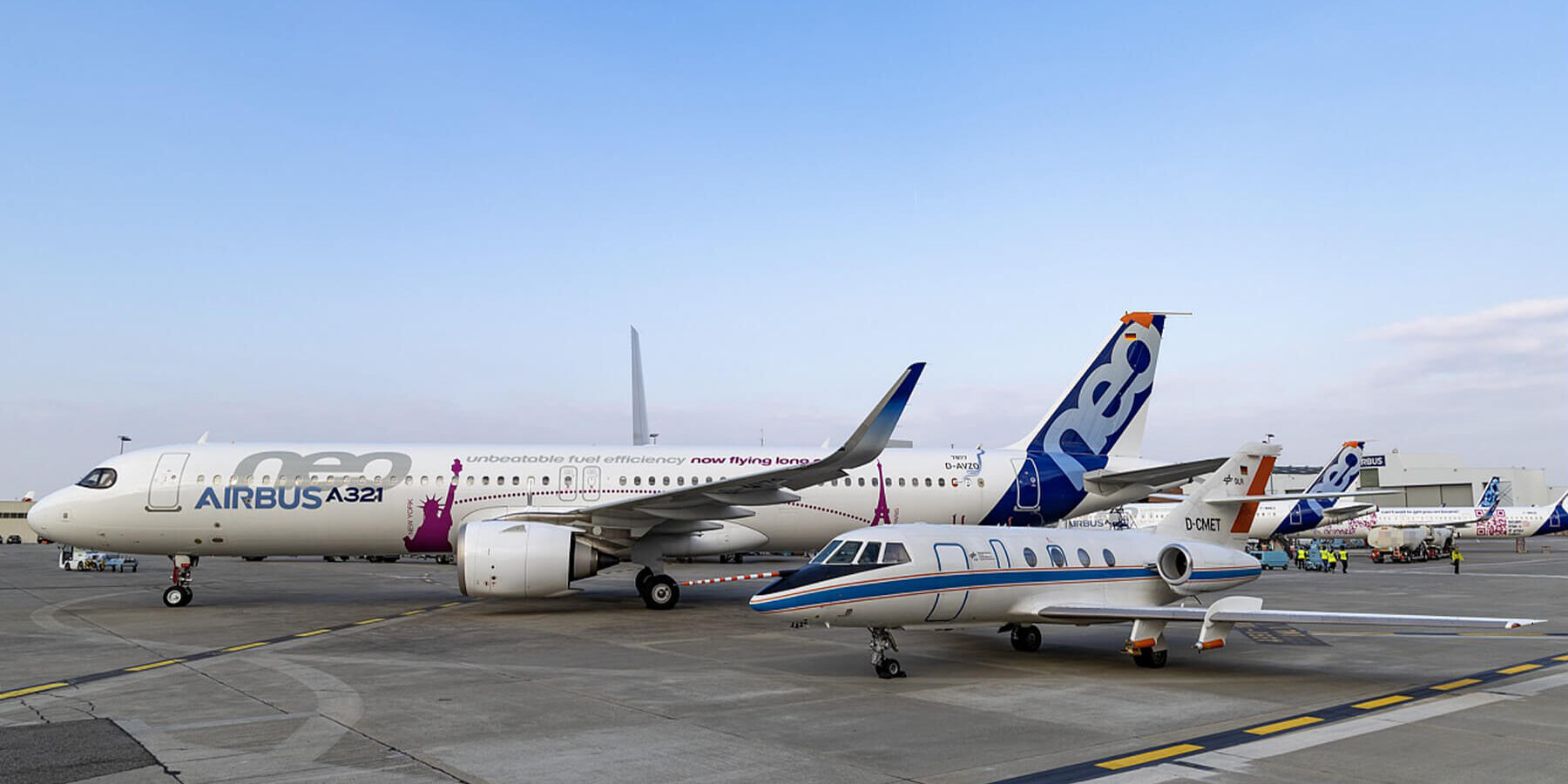Sustainable aviation fuel has the possibility to lower lifecycle emissions by up to 80% overall, but there is still much to learn about the emissions effects of using SAF in modern jet aircraft. That’s what Airbus and the German Aerospace Centre (DLR) are studying this week with their VOLCAN test flights.

The VOLCAN project
This week’s flights are the latest in a series part of the VOLCAN project (VOL avec Carburants Alternatifs Nouveaux, French for “Flight with new alternative fuels”). Airbus’ A321XLR D-AVZO powered by CFM LEAP-1A engines is the first Airbus single aisle aircraft to conduct a test flight on 100% SAF in both engines.

The DLR’s specially modified Falcon 20 jet will fly within 100 meters of the Airbus A321XLR to take measurements of the exhaust gases from the engines. This part of the campaign is focusing on non-CO₂ emissions from the engines as well as contrail formation. Contrail formation and longevity are increasingly playing important parts in understanding aviation’s effects on climate change.
Tracking VOLCAN flights

Airbus is using A321XLR MSN7877 for these VOLCAN tests. You can track the A321XLR using
The DLR aircraft is the research centre’s Falcon 20,

